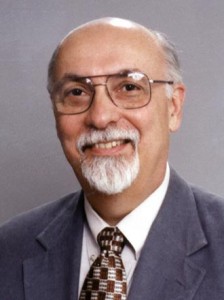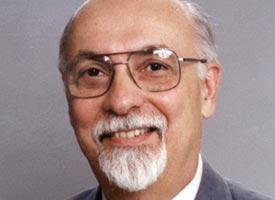With Dr. Bruce Hartung
Q: Our pastor is making a big case for going to private confession and absolution. Our elders are not so sure about this. Isn’t what we do on Sunday when we confess our sins enough? This may seem like a small question but it is stirring the pot a lot here. Several of our members were Roman Catholic, and they remember being required to go into a confession booth when they were younger. Didn’t Luther move away from doing this? (I have permission from the elders to write you.)
A: Indeed, private confession and absolution is a challenging process. Yet it is a great privilege, as well. Never coerced or forced, it is an opportunity for direct identification of a sin or sins and direct engagement of those sins with the redemptive word of Christ. It can be an ongoing part of a believer’s spiritual formation and growth.

In my 1943 copy of Luther’s Small Catechism, I read (beginning on Page 191) that in addition to the general confession, private confession with the pastor is encouraged but not forced. Sins that “we know and feel in our hearts” are to be confessed. “When we confess our sins to our pastor and ask for forgiveness (absolution) of such sins as especially burden our conscience, we receive the comforting assurance that these sins are forgiven.”
In What Luther Says (1959), a summary of Luther’s teaching published by Concordia Publishing House, topics include “Christians Should, on Occasion, Continue to Use Private Confession” (Page 330) and “A Sincere General Confession is Usually Enough” (Page 331), which addresses the question of what is enough.
An order of private confession is in Lutheran Worship (LW, 1982), Lutheran Service Book (LSB, 2006), the supplementary Occasional Services (1987) of the Lutheran Book of Worship (LBW) and LBW (1978) itself and in the Pastoral Care Companion (2007) that supports LSB.
While, of course, major articles could be and have been written about the use of private confession and absolution in the church, I hope the above can at least begin to demonstrate that private confession and absolution is a historic practice of the church. It has been supported and recommended in our tradition — from Luther until this day, as can be demonstrated in its consistent inclusion in our recently published hymnals.
The January 2014 edition of The Lutheran Witness included an article titled “My Forgiveness is God’s Forgiveness” (Page 13) that discussed this. Check it out!
At Concordia Seminary, St. Louis, and Concordia Theological Seminary, Fort Wayne, Ind., private confession is very much encouraged as an ongoing part of a student’s ministerial formation.
So my encouragement to you and to your elders is that you and your congregation’s members continue to prayerfully engage in study about the use and function of private confession and absolution and support your pastor’s leadership in offering it as an option to your members.
It is a great blessing to be able to put into words a sin or sins that one bears, in repentance confess them and receive the forgiveness of Christ directly. As the catechism states, “We should regard the absolution as if pronounced by God Himself, and in no wise doubt but firmly believe, that by it our sins are forgiven before God in heaven” (Page 191).
When each of us was baptized, we were given a new relationship with God and placed into a community — the body of Christ. We are not lonely pilgrims in this life, carrying our burdens and sins alone. In private confession we have opportunity to share those sins that vex us, taking them from our private world and placing them onto Christ our Savior through this means. There are other ways to do this, of course, including spiritual conversation, discipleship and spiritual direction. But this most direct and clear way offers great spiritual blessings and the personal reception of the forgiveness of our sins. As difficult as it may be to do this, what a blessing it indeed is.
The Rev. Bruce M. Hartung, Ph.D., is professor of Practical Theology at Concordia Seminary, St. Louis. He can be reached at hartungb@csl.edu.
